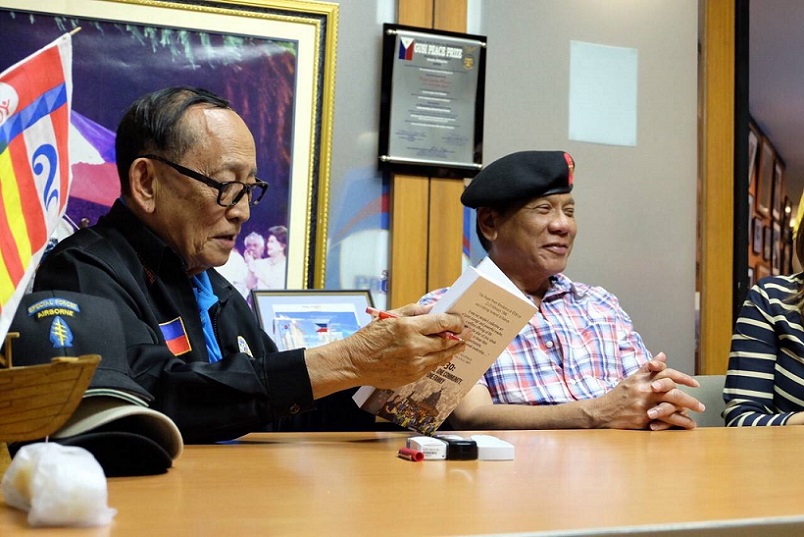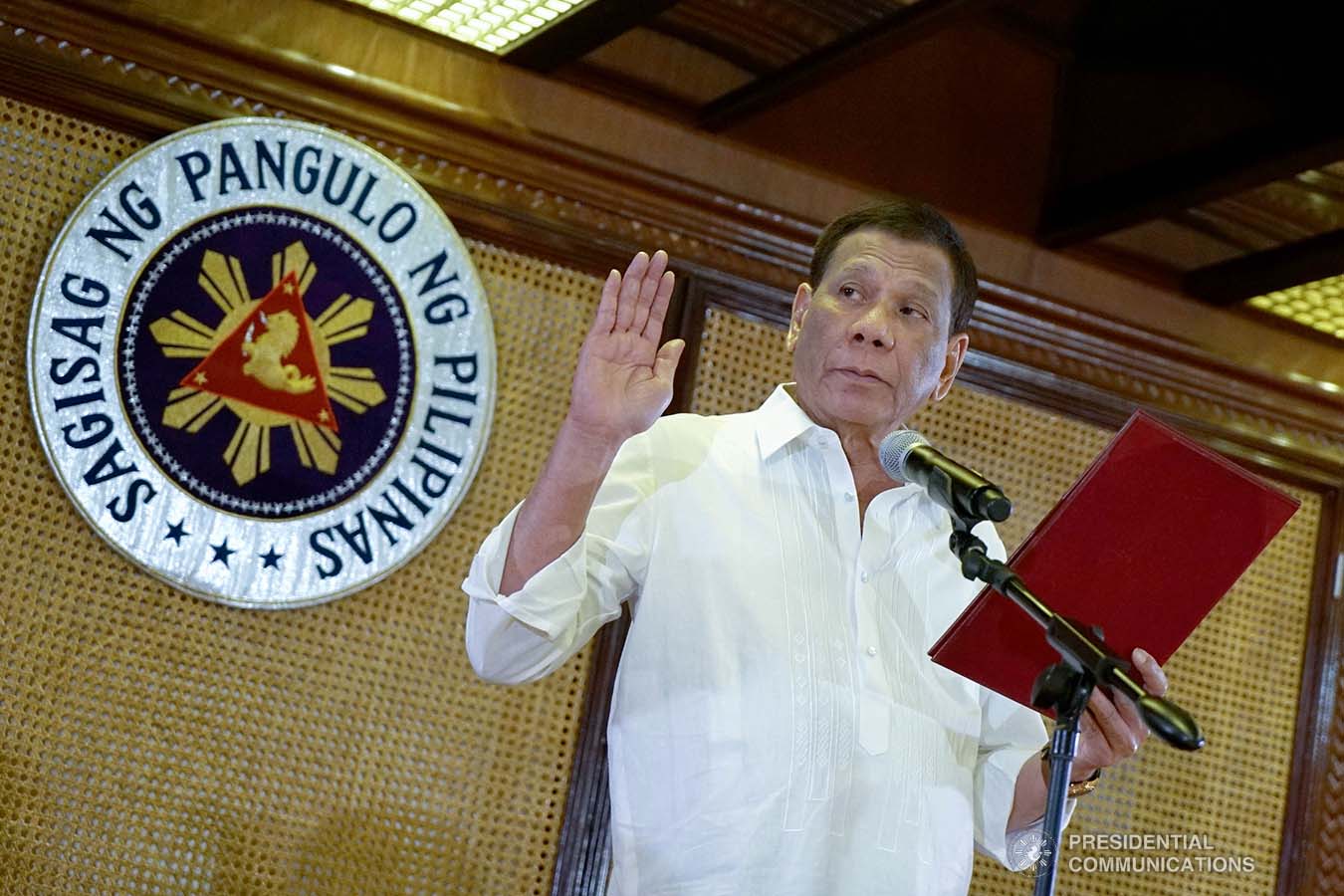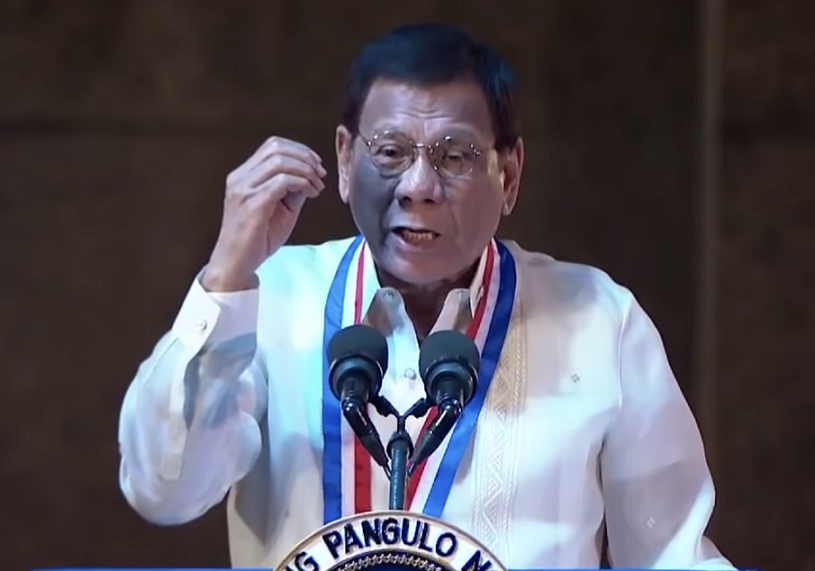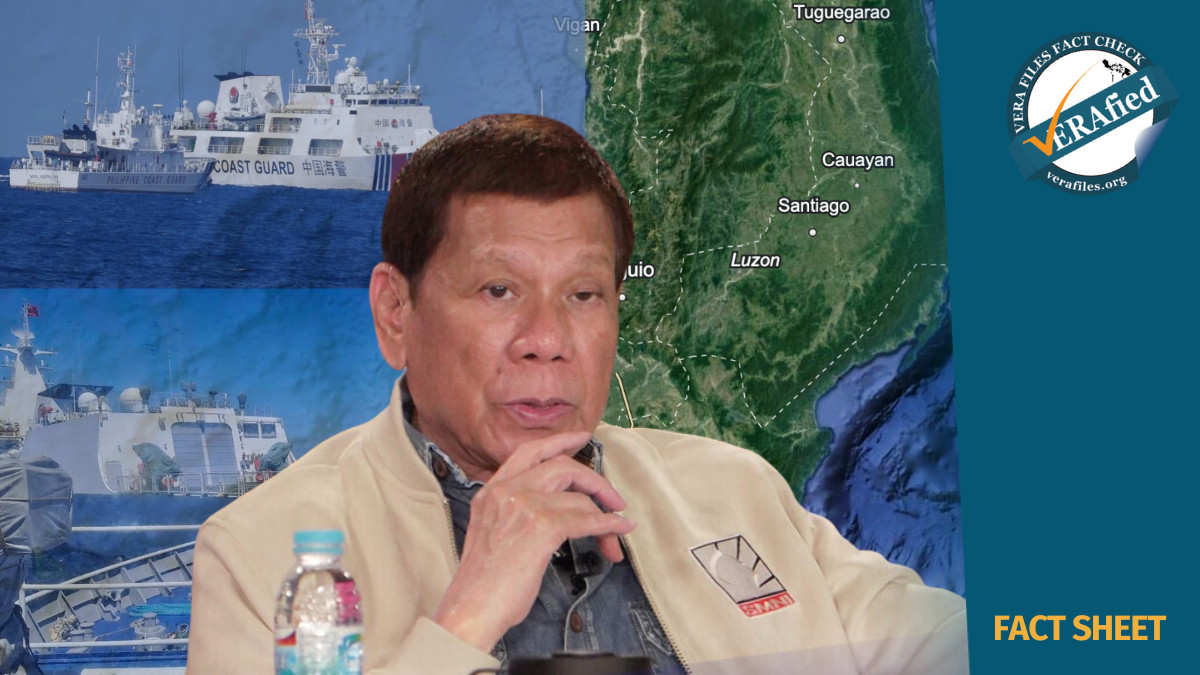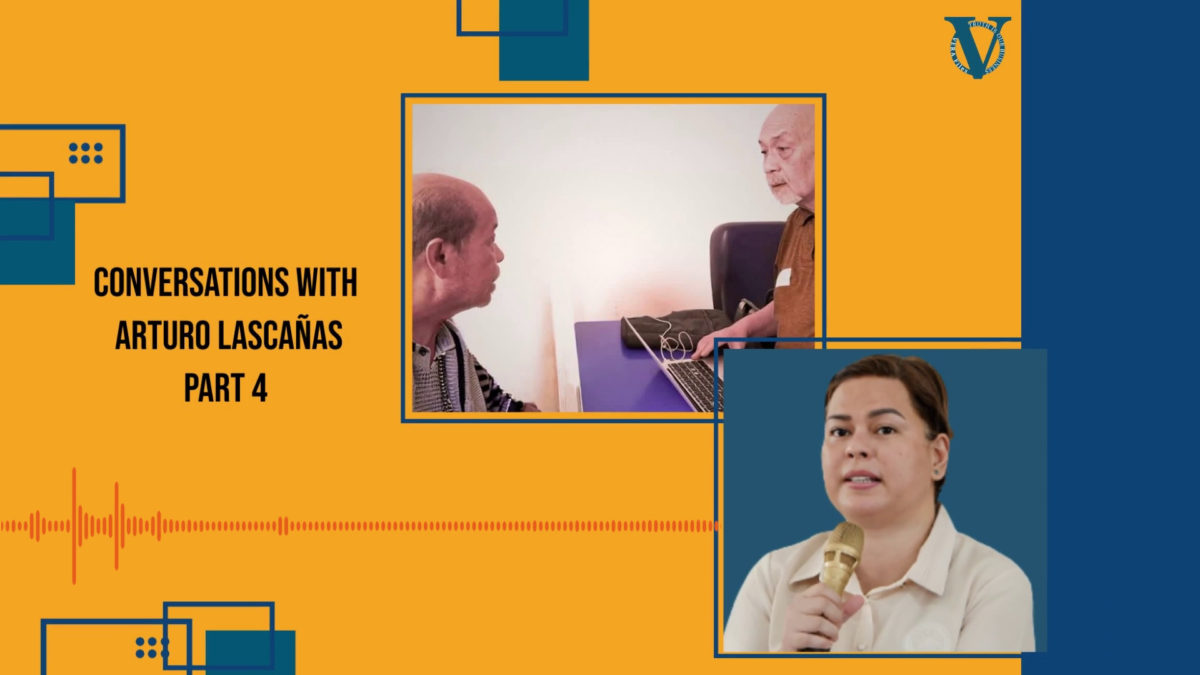“I came here because of my sincere conviction that the time had come to reverse the situation,” Fidel V. Ramos announced after breaking with the Marcos regime in February 1986.
History can no longer cast doubt on FVR as hero of the People Power revolution. With his act, he had redeemed himself from his long participation in the dictatorship. The same cannot be said of Juan Ponce Enrile who also turned his back on Marcos but later, backslid.
FVR almost repudiated himself when he endorsed Rodrigo Duterte for the presidency in 2016. Duterte then appointed him as special envoy to China. The English language China Daily, a propaganda newspaper of the publicity department of the Chinese communist party, was ecstatic that Ramos’ role would “help kick start bilateral talks over strained relations between the two countries.” We had almost succumbed to the reality that Ramos was playing into the irascible myopia of Duterte’s so-called China pivot card and had become a DDS supporter.
But only four months into the Duterte presidency, FVR redeemed himself by resigning from the post. It sealed his contrition and penance for supporting Duterte.
“Team Philippines is losing in the first 100 days of his administration – and losing badly. This is a huge disappointment and letdown to many of us,” he wrote in his Manila Bulletin column. It was a statement of rebuke promptly recorded by many of the world’s press. The elder statesman had just begun what turned out to be one of the most notable critical blasts against Duterte.
Intriguingly, Ramos’s stinging reprimand in his opinion piece on October 8, 2016 is nowhere to be found in the worldwide web. Click on the link to confirm. Why, Manila Bulletin?
In retrospect, now that Ramos has passed away, we absorb his Duterte criticism as a class act because it denounced the very elements of Dutertismo that retrogressed the Philippines into a fiasco and laughing stock of the world.
His first blast: Duterte was obsessed with the drug war, distracting him from pressing issues. “The war on drugs has given rise to a culture of impunity,” he said. Take note that this was only four months into the Duterte presidency, which is telling of how within that short period even Ramos had noted how Duterte had deformed the Philippine National Police into a state- sponsored killing machine.
“Police work, which is a little different from military operations, does follow its basic rule of engagement, which is you shoot to disable, but not to kill,” he said.
And then the second awful assessment: Duterte was not talking to his cabinet on issues such as ties with China and the United States or peace talks with Muslim insurgents and communist rebels. Ramos called it “too much unilateralism,” and said, “The way it is, there is a lack of consultation.”
It was like the word despot was at the tip of his tongue.
Of course, it is widely known that consultation was never a practice in Duterte’s Davao City governance so Ramos’ advice in realpolitik was that the former mayor should consult “also with the rest of the citizenry.”
A sitting president who has to be told that reduces him to kindergarten level in national politics. It was an abject lesson that even 20 years of experience in local traditional politics does not automatically translate into mature public servanthood.
And then Ramos caught a Duterte lie and called him out. On September 5, 2016, Duterte spoke to Filipinos in Laos and said, based on the video and on the official transcript sent by the Presidential Communications and Operations Office, that the former president “showed me a list ng mga . . . nandoon na, mga general sa droga, pati iyong pulis ganoon kakapal.”
Ramos reproached Duterte in his September 10, 2016 column – which was also taken down. It was an admonition that practically revealed that Duterte lied. Written in all caps at the end of his article was his denial: “POST-SCRIPT – DON’T BELIEVE THAT FVR VISITED MAYOR DU30 IN DAVAO CITY 4 TIMES AND GAVE THE MAYOR ‘A THICK LIST OF DRUG LORDS.’ NO WAY!!!”
That was FVR’s third redemption moment.
In September 2016, Duterte had called U.S. President Barack Obama an S.O.B. for raising questions on extrajudicial killings in the country. As an offshoot of the vulgar name-calling, Obama called off a scheduled meeting with Duterte in Laos. When human rights experts of the United Nations said Duterte could be held liable for EJKs and the absence of law enforcement compliance with international human rights obligations, he called the agency inutile and stupid. He also threatened to remove the Philippines from the U.N.
In reaction, Ramos said Duterte’s stance was “discombobulating.” He wrote, “So, what gives?? Are we throwing away decades of military partnership, tactical proficiency, compatible weaponry, predictable logistics, and soldier-to-soldier camaraderie just like that? On P. Du30’s say-so???” Notice his exclamations.
That was FVR’s fourth redemption moment.
There was no end to the Duterte vulgarity. His palace officials were fumbling over each other like amateur acrobats covering up his statements as either jokes or comments misunderstood by media. But not Ramos.
In a Davao city speech, a city that has no opposition to his high profile family, Duterte likened himself to Adolf Hitler. He boasted that if Hitler had murdered millions of Jews, the country’s former president said he would be happy to slaughter three million drug addicts in the Philippines. His sense of comparison was not even logical.
Ramos did not let that pass. “In the case of his recent ‘Hitler quip,” no amount of apology could mollify the long-suffering Jews who have done well for the Philippines,” he wrote, referencing how the country welcomed 30,000 Jewish families allowed by President Manuel L. Quezon to resettle in the country.
The Ramos statement was important. Among many in the world outraged by Duterte’s ghoulish fascination were U.N. special adviser on the prevention of genocide Adama Dieng, Simon Wiesenthal Center’s Digital Terrorism and Hate project head Rabbi Abraham Cooper, Todd Gutnick of the Anti-Defamation League, an international Jewish group based in the United States.
That was FVR’s 5th redemption moment.
And then came one of the greatest Duterte shockers – the surreptitious burial of the dictator Ferdinand Marcos Sr. at the Libingan ng mga Bayani. It was a well-concealed conspiracy hatched by Malacañang, the Marcos family and the military.
“I felt very bad,” Ramos said. “I felt very bad especially for the veterans. As well as for a lot of members of the Armed Forces of the Philippines,” he told a media briefing. He slammed the connivance and called for those involved to be investigated.
Aware of a looming public outrage, he apologized that his health would not permit him to join protests, and the press conference he called to express his thoughts on the controversy was “the biggest protest” he could think of.
That was his 6th redemption moment.
But as if that were not enough, FVR segued from the burial to Marcos’ accountability. Few had probably noticed Ramos’ scathing demand for an apology from Imelda Marcos – for her family’s accumulation of ill-gotten wealth. No former high official of the country had ever done that. He added that the Marcos wealth should be used for humanitarian purposes and payment for claims for martial law victims.
That was his 7th redemption moment.
The final straw was something Ramos never disclosed publicly. It was revealed only after the announcement of his death on July 31, 2022 at the age of 94. His official biographer Melandrew Velasco, who has authored two books about Ramos, made a breaking disclosure to media:
Velasco described a “privileged communication” with Ramos that happened before the 31st anniversary of the EDSA People Power Revolution in February 2017. “Kaming dalawa lang noon sa office. He told me, ‘Mel, I think you’re right. I may have made a mistake in endorsing that guy.’ He said that to me,” Velasco revealed.
That was FVR’s 8th redemption moment.
True to his demeanor as an officer, a gentleman and an engineer, Ramos was quiet for the most part of Duterte’s remaining years in office. We can only ideate the final indignity he saw as the nation suffered.
Fidel Valdez Ramos died with the bona fides of a statesman of the republic.
The views in this column are those of the author and do not necessarily reflect the views of VERA Files.
